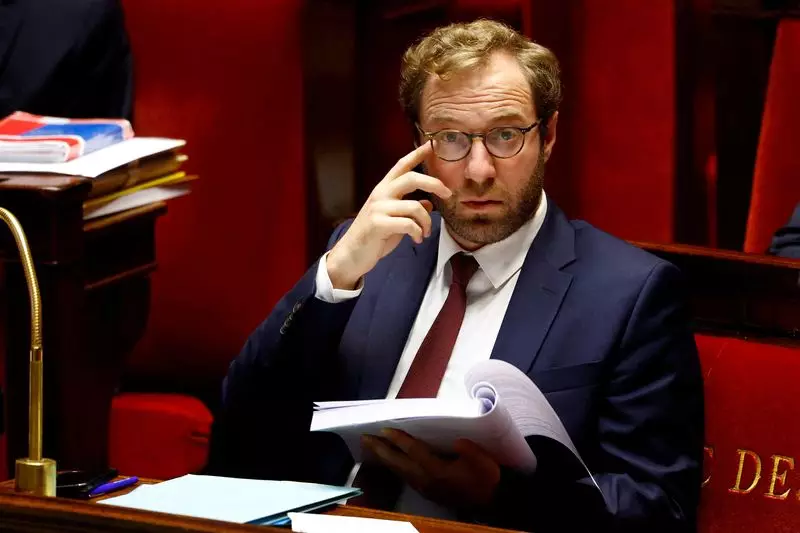France finds itself at a crossroads in its financial journey as the government grapples with a complex budgetary crisis. With an escalating budget deficit projected to exceed 6% of the nation’s economic output this year, the implications reverberate throughout various sectors. The ongoing tussle between the French government and political factions, particularly the far-right National Rally (RN), underscores the precarious situation faced by Prime Minister Michel Barnier and his administration.
Recent developments have added layers of complexity to an already challenging fiscal environment. The government’s efforts to implement stringent budgetary measures aimed at saving €60 billion ($64 billion) through a mix of tax hikes and spending cuts are meeting staunch resistance from both the opposition and politically influential groups. This struggle not only threatens the stability of Barnier’s minority government but also hampers investor confidence, as the risk premium on French government bonds has surged to the highest levels in over a decade.
The current impasse highlights the pivotal role of the National Rally, led by Marine Le Pen. With the government relying on RN’s tacit support to navigate through a looming vote of no confidence, the stakes are exceedingly high. Le Pen has positioned herself as a formidable opponent, setting a deadline for the government to acquiesce to her demands regarding the budget. The RN’s insistence on modifications to a pension adjustment plan—a move intended to delay increases in line with inflation—continuously pressures the Barnier administration.
Statements from Finance Minister Antoine Armand demonstrate the government’s willingness to engage in dialogue, but criticism remains regarding the effectiveness and sincerity of these discussions. The government’s approach appears increasingly reactive rather than proactive, undermining its credibility and making it vulnerable to the RN’s demands, which include cuts to social security funding, changes to medication reimbursements, and tax reforms targeting financial transactions.
The ramifications of this budgetary crisis extend beyond political maneuvering; they encompass broader economic implications. The ratings agency Standard & Poor’s provided a temporary reprieve by maintaining the current credit rating of Barnier’s government. Yet, the economic forecast remains dim, with expectations suggesting the budget deficit may settle at 5.3% next year, far from the EU’s target of 3%. Investors are increasingly apprehensive about the country’s ability to regain fiscal discipline.
The persistent pressure from the RN has caused turmoil in the French stock and bond markets, where government bonds have seen their risk premiums rise sharply. Perhaps most alarming is Armand’s warning that failure to finalize a budget could significantly elevate financing costs for French debt. The lack of a concrete budget framework not only cultivates an environment of uncertainty but also poses a direct threat to France’s economic stability and credibility in the eyes of international investors.
As the Barnier government prepares to unveil its social security financing legislation in the coming days, the potential for a no-confidence motion looms large. The government’s strategy—or lack thereof—could either solidify its standing or precipitate a political crisis. With both the left and far-right united in their critique of budget plans, Barnier may find himself caught in a precarious balance between satisfying the demands of influential parties and maintaining fiscal responsibility.
Politically, the landscape is tumultuous, with Barnier’s government needing to navigate carefully to avoid a collapse. On the economic front, however, time is of the essence. France must take decisive action to reassure investors and restore confidence in its fiscal management. The path forward remains fraught with challenges as the government confronts the realities of a divided political environment while grappling with the pressing need for budgetary reform.
The coming weeks will be crucial, as they will determine whether France can stabilize its economic health and assert its position within the European Union framework. The interplay of political negotiations, economic pressures, and public sentiment will shape the outcome of this budget crisis, reinforcing the intricate relationship between governance and fiscal policy in the modern age.

